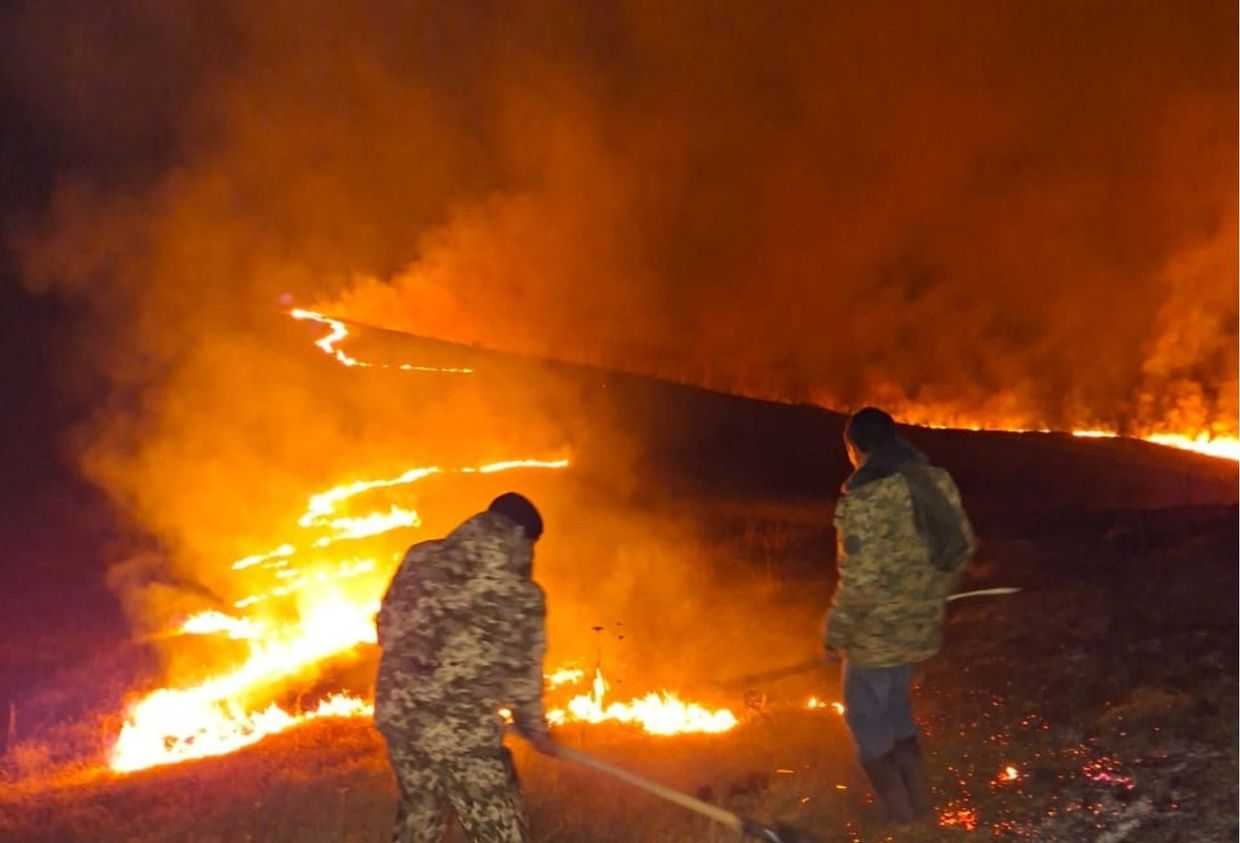Shukruti protesters vow to sew lips shut after being barred from entering Ivanishvili’s village

A group of Shukruti residents protesting manganese mining under their village have vowed to sew their lips shut after local residents blocked them from entering Chorvila, the birthplace of Georgian Dream founder Bidzina Ivanishvili.
Members of the group vowed on Monday to sew their lips shut on 1 September, having done so previously in their protests against Georgian Manganese, a company running extensive manganese mines in the region. They have repeatedly called on the government to intervene in their conflict with the mining company.
The move comes after around 30 Shukruti residents marched to Chorvila on Saturday, a four-hour hike from Shukruti, to take their protest to Ivanishvili’s birthplace. They were unable to reach Ivanishvili’s house after being blocked by a group of people claiming to be supporters of Ivanishvili from the village as police stood nearby.
Protesters seeking to stage anti-government protests near Ivanishvili’s home in Chorvila are often prevented from doing so by people claiming to be his supporters.
Footage of the march released by Mtis Ambebi shows a TV Pirveli camera operator being forcibly removed from the village’s entrance, preventing him from filming despite the heavy police presence there.
Ivanishvili is believed to spend most of his time at his residence in Tbilisi.
Residents of Shukruti and other villages in Georgia’s Chiatura region have been protesting against Georgian Manganese’s presence and mining operations in the region since 2019. They have demanded compensation for damage caused to their homes and properties, which they attribute to Georgian Manganese’s mining.
[More, in pictures: Living on the brink of collapse in Shukruti]
In May 2021, a group of people from Shukruti sewed their lips shut as an extreme form of hunger strike in protest against Georgian Manganese, ending their 30-day hunger strike after they reached a confidential agreement with Georgian Manganese. They renewed their protest in March of this year by blocking the entrances to the Korokhnali and Shukruti mines, once again demanding adequate compensation.
Residents have repeatedly demanded that the state intervene in their dispute with the company. However, last month, the authorities criminally charged three local protesters — Giorgi Neparidze, Roman Megrelishvili, and Malkhaz Labadze — for illegally ‘paralysing’ the mines. The charges were filed just days after the company was accused of sending an unidentified group of men to forcibly reopen the mines.
On 8 August, the Sachkhere local court additionally granted a motion by Magharoeli, Georgian Manganese’s subcontractor firm, prohibiting protesters from blocking the entrances of the mine.
In the run-up to the march to Chorvila on 24 August, pro-government media outlets that had largely ignored the protest for over five months began to highlight the amounts of compensation that protesters had supposedly already received and allegedly negative impacts of the protests on the local community, including preventing miners from working.









